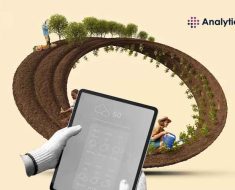× close
A recent study published in Ecological Informatics by a team of University of Alaska Fairbanks researchers has used artificial intelligence to further illuminate a habitat swap among short-billed gulls.
Typically gulls live along coastlines and near water sources such as rivers. They feed on bugs and other small mammals, fish or birds.
The team found that from May to August, short-billed gulls occupied areas that have typically been the haunts of scavenging ravens. Those include supermarket and fast-food restaurant parking lots and other human-made structures, such as industrial gravel pads and garbage dumpsters.
The study is the first of its kind to compile a three-year dataset using a citizen science-based, opportunistic research method to include a large sample of gulls and other sub-Arctic birds in urban Alaska. The study provides a current snapshot of the habitat shift to an urban landscape.
UAF professor Falk Huettmann, first author on the paper, and his team used artificial intelligence modeling that was given predictors—environmental variables for specific locations—to extrapolate information about the gull occurrences. A similar, earlier study analyzed the distribution of the great gray owl.
In this study, researchers used U.S. census data as well as urban municipality data, such as distances to roads, restaurants, waterways and waste transfer stations.
“Using socioeconomic datasets like the U.S. census is a real game-changer,” said Moriz Steiner, a graduate student in Huettmann’s lab. “It allows us to mirror the real-world environment and simulate a situation as true to nature as possible by including them as variables in the models.”
The findings indicate that the gulls’ transition from natural habitats to a more urban landscape is spurred by the availability of human food, as well as industrial changes.
“They are exploiting the waste opportunity left behind by humans,” said Huettmann, who is associated with UAF’s Institute of Arctic Biology.
Short-billed gulls, known as mew gulls until 2021, are omnivorous and highly adaptable. While gulls can find more food in garbage dumps and gravel pits, the food is often bad for longevity and can even cause death. Easily available food from avian “dumpster diving,” especially at fast-food restaurants, can prove lethal to the birds due to high quantities of salt, fat, sugar, grease and contaminants.
Gulls are also good indicators of disease in an ecosystem.
The team found an increase of disease hosts where the gulls congregate, sometimes up to 200 birds at each locale, in summer. Gulls spread infectious diseases such as avian influenza and salmonella, which can be transferred to humans. According to an unrelated study, the first recorded outbreak of gull-linked salmonella occurred in 1959 and was recorded in North America in Ketchikan.
“Gulls are known as the leading vectors of diseases. They suffer overwhelmingly from bird influenza. What we demonstrate in the maps are essentially disease reservoirs which happen to coincide with human development,” said Huettmann, who also has an appointment in the UAF College of Natural Science and Mathematics.
For Huettmann, these studies are just further indication that what is referred to as “wildlife” is changing.
“This kind of information is providing a more holistic picture of how man-made influence on the environment is changing what we otherwise know as natural. Using machine learning will help us, hopefully, to advocate for improved wildlife conservation,” Huettmann said.
More information:
Falk Huettmann et al, Model-based prediction of a vacant summer niche in a subarctic urbanscape: A multi-year open access data analysis of a ‘niche swap’ by short-billed Gulls, Ecological Informatics (2023). DOI: 10.1016/j.ecoinf.2023.102364


![[2310.07604] Surface segregation in high-entropy alloys from alchemical machine learning [2310.07604] Surface segregation in high-entropy alloys from alchemical machine learning](https://aigumbo.com/wp-content/uploads/2023/12/arxiv-logo-fb-235x190.png)
